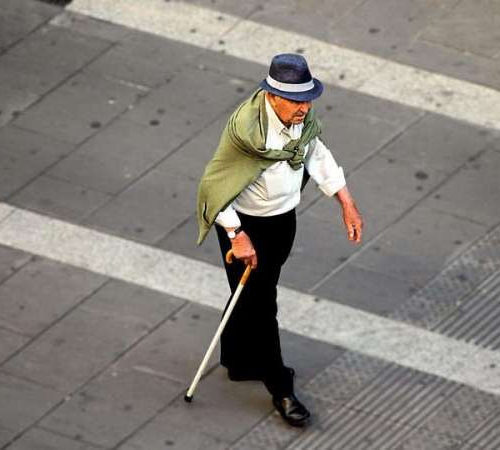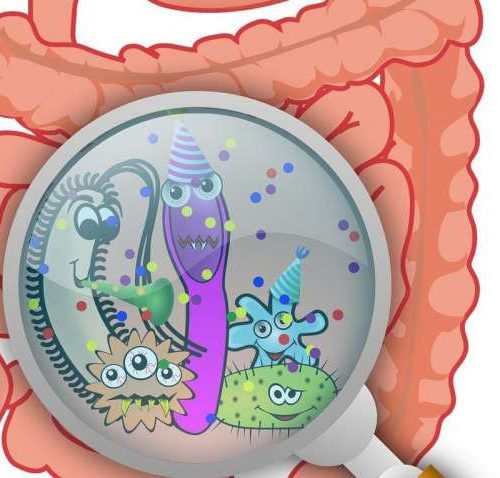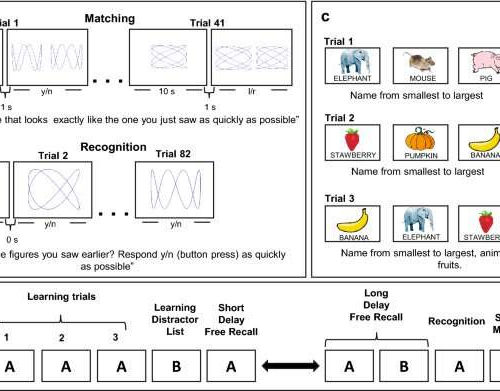Incorporating social and behavioral factors alongside biological mechanisms is critical for improving aging research, according to a trio of studies by leading social scientists A trio of recent studies highlight the need to incorporate behavioral and social science alongside the study of biological mechanisms in order to slow aging. Image credit: Pixabay (Free Pixabay license)...
Category: <span>Anti-aging</span>
Immune protein may link chronic inflammation and frailty in older adults
by Johns Hopkins University Johns Hopkins Medicine researchers have identified an immune system protein called interleukin-6 as a possible link between chronic inflammation and frailty in older adults. Credit: Public domain image Chronic inflammation in people age 65 and older may be marked by frequent infections, pain, injuries and slow healing wounds. To make matters worse, the negative...
Atherosclerosis can accelerate the development of clonal hematopoiesis, study finds
MASSACHUSETTS GENERAL HOSPITAL BOSTON — Billions of peripheral white blood cells are produced every day by the regular divisions of hematopoietic stem cells and their descendants in the bone marrow. Under normal circumstances, thousands of stem cells contribute progeny to the blood at any given time, making white blood cells a group with diverse ancestry. ...
Appetite linked to healthier gut bacteria in over-60s
by King’s College London Credit: Unsplash/CC0 Public Domain Over-60s with a good appetite have more diverse and different communities of microbes in their gut than those with a poor appetite, a study has found. The study, published today in the Journal of Cachexia, Sarcopenia and Muscle from King’s College London and the University of Southampton, is the first...
‘STEREOTYPE THREAT’ MAKES OLDER ADULTS PERFORM WORSE
Stigmatized groups—whether due to race, socioeconomic status, or age—perform more poorly when faced with negative stereotypes, says Sarah Barber, a psychology and gerontology researcher at Georgia State University. She found expectations of others can play a powerful role in how well older adults perform on cognitive tasks and motor skills such as driving. The phenomenon...
Hormone helps prevent muscle loss in mice on high fat diets, USC study finds
UNIVERSITY OF SOUTHERN CALIFORNIA A new study suggests that a hormone known to prevent weight gain and normalize metabolism can also help maintain healthy muscles in mice. The findings present new possibilities for treating muscle-wasting conditions associated with age, obesity or cancer, according to scientists from the University of Southern California Leonard Davis School of...
Gut microbiome implicated in healthy aging and longevity
by Institute for Systems Biology Credit: CC0 Public Domain The gut microbiome is an integral component of the body, but its importance in the human aging process is unclear. ISB researchers and their collaborators have identified distinct signatures in the gut microbiome that are associated with either healthy or unhealthy aging trajectories, which in turn predict survival...
Cocoa flavanols may boost memory in older people
by Alzheimer’s Research UK Example of the neuropsychological tests used to assess cognitive performance, including (a) Object-Recognition test (Modified Benton recognition task), (b) List-Learning memory test (Modified Rey auditory verbal learning test), and (c) List-Sorting task (List sorting working memory test from the NIH Toolbox Cognition Battery). Example stimuli for the ModBent (a) were generated in MATLAB (MathWorks,...
New research identifies biological causes of muscle weakness in later life
by University of Exeter Credit: CC0 Public Domain A new largescale genetic analysis has found biological mechanisms that contribute to making people more susceptible to muscle weakness in later life, finding that diseases such as osteoarthritis and diabetes may play a large role in susceptibility. As we get older we lose muscle strength, and in some people...
Synthesized very-long-chain polyunsaturated fatty acids improved retinal function in mice
UNIVERSITY OF UTAH HEALTH Scientists like the John A. Moran Eye Center’s Paul S. Bernstein, MD, PhD, know a special class of lipids, or fatty acids, found in the retina of the eye and in just a few other parts of the body play an important role in maintaining vision. But it’s been difficult to...






